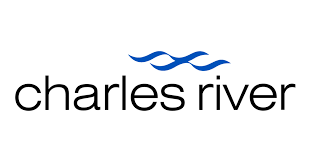Catalog
This talk will provide an overview of the Cell Microarray platform, with a particular focus on how specificity/off-target screening can aid drug development spanning lead selection to safety assessment across a variety of biotherapeutic modalities including antibodies, proteins, small molecules, viruses, CAR therapeutics, and other ligands.
This off-target analysis provides valuable data that can inform lead selection to filter-out polyreactive candidates, assist with safety assessment, and provide IND-enabling data for regulatory submissions. Cell Microarray data confirming target specificity have been included in IND submissions to various regulatory agencies, such as the FDA (USA), EMA (Europe), NMPA (China) and PMDA (Japan), either in complement with, or as an alternative to, tissue cross reactivity data.
About this item
The Retrogenix Cell Microarray platform is a powerful multi-modality solution for in vitro off-target screening, receptor identification and target deconvolution. This technology identifies interactions with cell surface receptors and secreted proteins by screening test ligands for binding against over 6,500 full length proteins that are individually over-expressed in human cells.
This talk will provide an overview of the Cell Microarray platform, with a particular focus on how specificity/off-target screening can aid drug development spanning lead selection to safety assessment across a variety of biotherapeutic modalities including antibodies, proteins, small molecules, viruses, CAR therapeutics, and other ligands.
This off-target analysis provides valuable data that can inform lead selection to filter-out polyreactive candidates, assist with safety assessment, and provide IND-enabling data for regulatory submissions. Cell Microarray data confirming target specificity have been included in IND submissions to various regulatory agencies, such as the FDA (USA), EMA (Europe), NMPA (China) and PMDA (Japan), either in complement with, or as an alternative to, tissue cross reactivity data.

Speaker Information
Samuel S. Chuang, Ph.D.
Dr. Chuang works as the Senior Director and Senior Principal Scientific Advisor at Charles River with over 20 years of experience providing scientific and regulatory expertise covering a variety of drug classes (small to large molecules, oligonucleotides, cell and gene therapies, etc.) and medical devices across various therapeutic areas, routes of administration, and animal species. He also leads multidisciplinary research teams for drug development programs beginning from target identification and drug discovery through nonclinical safety programs towards premarket approval. Sam has a PhD in microbiology and immunology from the University of Tennessee, Health Science Center, and a bachelor’s degree in biology from The University of Western Ontario.

Sarah Dawson
Sarah Dawson works as a Senior Research Leader at Charles River, having previously been a Senior Scientist at Retrogenix Ltd. for eight years before acquisition in 2021. Sarah manages scientific technology developments for the Retrogenix Cell Microarray platform and supports client projects across a wide variety of therapeutic modalities. Prior to Charles River/Retrogenix, Sarah worked at AstraZeneca for 21 years in small molecule drug development, with a range of roles covering target identification and lead optimization screening programs, through to preclinical safety assessment and translational biomarker analysis.

